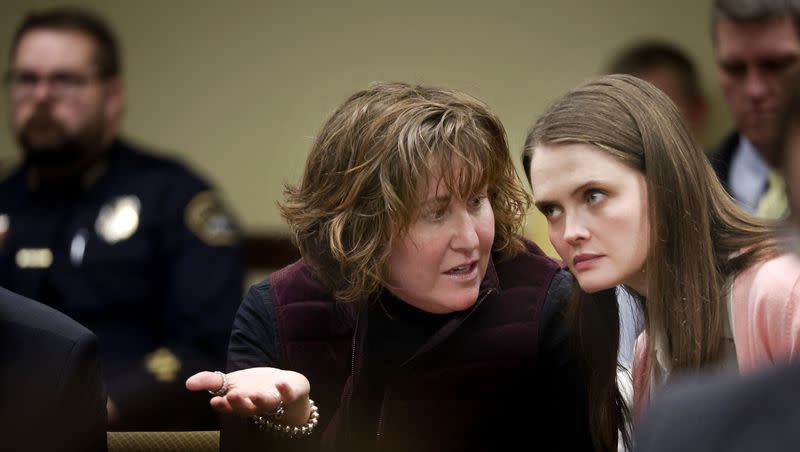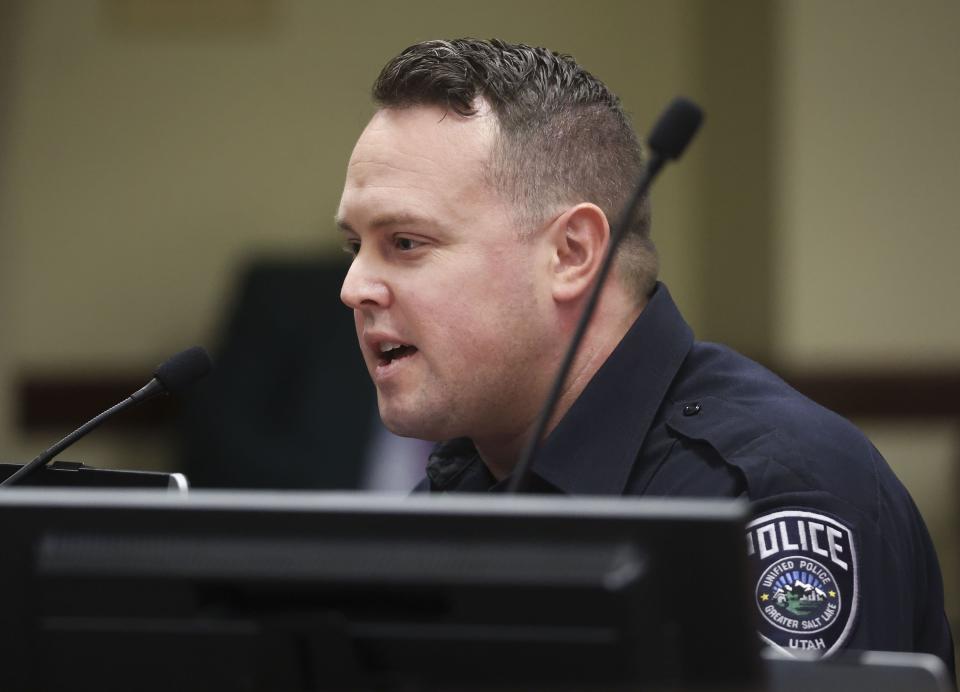Bill would consider victims’ needs when student offenders go back to school

- Oops!Something went wrong.Please try again later.
A new bill would take victims’ perspectives into account when reintegrating student offenders back into the school setting.
HB418 would create an avenue for students who engage in violent felonies or sexual misconduct toward a peer to attend a school that’s different than the victim-survivor’s school. It would also create a procedure for a student to attend a different school if a peer at that school has a protective order against them.
The bill was discussed in the House Law Enforcement and Criminal Justice Committee on Wednesday.
Rep. Ashlee Matthews, D-West Jordan, said that the bill “prioritizes the safety and the mental health of the victims of the crime — whether they are teachers, faculty members, or other students and taking all of those victims statements into account when determining when or if the student offender is reintegrated into their home school.”
Ben Horsley, the chief of staff for Granite School District, said “This will simply codify what our practice has been,” explaining that sometimes the procedures haven’t been followed properly.
“It’s important when there are victims of serious crimes on school property, whether it be a sexual act or an act of violence or behavior, that if and when a student (offender) needs to be reintegrated after mitigating that through the safe school process and procedure after being suspended for a period of time and working through other mitigation, there is an opportunity for us to notify and work with the victims,” Horsley said.
During the public comment portion of the committee meeting, Pamela Vickrey with the Utah Juvenile Defender Attorneys said, “I think none of us want to be able to see a situation where a victim has to be forced to go to school with someone who is an offender and there can’t be accommodations made to address that.”
Vickrey expressed concern that every kid who got into a fight at school would have to be expelled or suspended because of how broad the language was.

Unified Police Sgt. Zach Young said that the bill in question “was an effort to have a tool to allow us to protect students.” He spoke about his experience supervising a unit for school resource officers and how often they deal with difficult cases. “We have students who don’t know how to feel safe going to their schools.”
Young said he believes the bill helps educators focus on their jobs of educating young people and allows law enforcement to have the tools they need to focus on public safety.
Erin Preston, an education attorney, said “the intent of the bill is good” but there were some areas that she believed could result in unintended consequences. “As someone who has represented a lot of rural schools and charter schools that only have one school facility, I have some particular concerns if we don’t allow a student to return to that school facility and the next school is 50, 60 miles, have we not just disenfranchised that child?”
Preston added that in smaller school districts, there might not be a student resource officer who has an ongoing relationship with the administration and that could also bring in some difficulties.
At the close of public comment, there was a voice amendment from Rep. Karianne Lisonbee, R-Clearfield. The amendment was to change a word in the bill from “restrain” to “prevent” in the context of the following line “to restrain the minor if the parent or guardian knew in advance of the minor’s intent to commit the repeated offense.”
Lisonbee said she wanted to make this amendment because she believes parents have a responsibility over their child, but they might not be able to physically restrain their child if their child is at school. The word “prevent” could include calling law enforcement if they knew their child was planning on repeating the offense.
This amendment was unanimously accepted.
At the conclusion of the committee’s discussion, the committee voted to advance the bill and give it a favorable recommendation.

